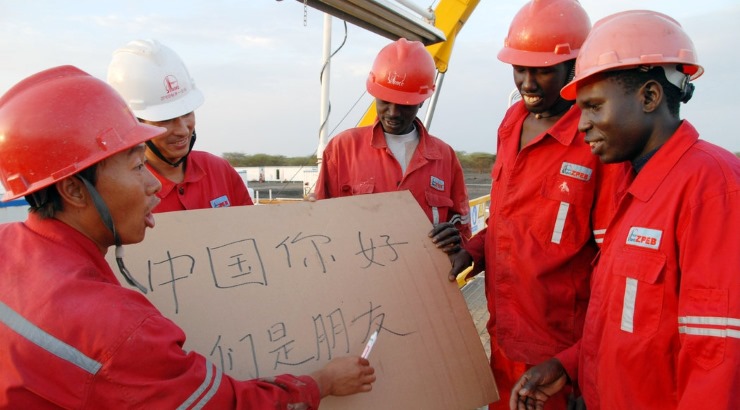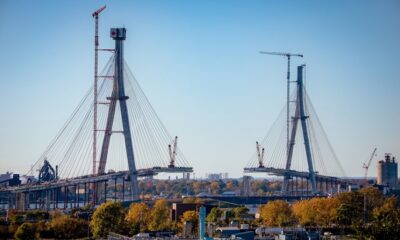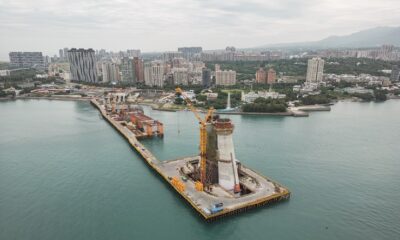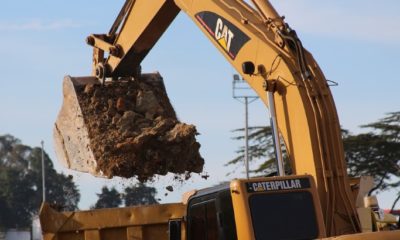Infrastructure
Why Chinese firms are moving away from Kenya mega projects
Chinese multinationals are now warming up to other sectors of the economy.

Chinese contractors are increasingly moving away from Kenya public infrastructure projects in response to Nairobi’s abandonment of its debt-funded development strategy in favour of long-term partnerships with private developers.
The Kenyan government, in a dramatic attempt to tame its fast rising public debt that stands at Sh5.3 trillion, has lately put the brakes on new loans acquisitions for projects – opting instead to develop its infrastructure on a private public partnerships (PPP) model.
Under the PPP model, an investor designs, finances, builds, operates, and maintains a facility for 15-20 years to recoup his investment before handing over the facility to the State.
While this model frees the government of the burden of raising funds for a project, it has unclear financial returns.
For example, an investor who builds a toll road may record fewer users than expected. If the investor agreed to pay a fee no matter the demand, that partner bears a huge financial risk.
Out of these fears, Chinese multinationals are beginning to warm up to other sectors of the Kenyan economy among them manufacturing and ICT, which have clear financial returns.
Indeed, Global consultancy firm Control Risks says in a new study that given the huge number of projects with unclear financial returns, the Chinese will naturally look for other sectors to invest in.
“In this regard, manufacturing and information technology are likely to be a priority,” Control Risks East Africa senior partner Daniel Heal wrote in the research note.
Mr Heal’s sentiments are amplified by Patricia Rodrigues, an analyst with the company, who said manufacturing and ICT are relatively easier to justify financing.
“Amid rising wages elsewhere in the world, there is a push to find low-cost manufacturing hubs; Africa’s large population will likely provide cheaper production options for Chinese companies,” Ms Rodrigues said.
Interestingly, Chinese firms are conspicuously missing in the list of bidders and builders of some of the latest big dollar projects such as phase two of Dongo Kundu bypass in Mombasa, Nairobi-Nakuru-Mau Summit highway, and the much-awaited Mombasa-Nairobi Expressway.
Fujita Corporation-Mitsubishi Corporation, a Japanese consortium, will next month begin construction work on phase two of the Dongo Kundu bypass – taking over from China Civil Engineering Construction Corporation, which undertook the initial phase of the project.
On its part, the Nairobi-Nakuru-Mau Summit highway – which will be built under the PPP programme – failed to attract any Chinese bidder. The Sh180 billion highway is likely to be built by Rift Valley Connect – a consortium of Vinci Highways SAS, MIAF, and Vinci Concessions SAS.
Last week, KeNHA designated RVC as the “preferred bidder” for the project – with Mota-Engil, which is made up of Aiim, Egis, Mota-Engil and Orascom, being named the “reserve bidder”.
READ: Bitter fight erupts over Nairobi-Mau Summit highway tender
Most interestingly, the 473-kilometre Nairobi-Mombasa high-speed expressway had initially attracted a lot of interest from top Chinese multinationals, but the firms grew cold feet shortly after the Kenyan government floated the PPP idea.
The departure of Chinese companies from the Kenyan infrastructure scene offers some relief to local contractors who have long complained of being left out in the tendering of mega infrastructure deals.
READ: Chinese grip on Kenya projects upsets local builders
Since 2003, when then President Mwai Kibaki moved to strengthen trade relations between Kenya and China, a host of Chinese companies have set up bases in Nairobi from where they undertake big ticket projects on behalf of the Kenyan government.
As a result, most indigenous contractors have now been confined to undertaking small projects in villages. Others have resulted to forming consortia with Indian and European multinationals when bidding for big-ticket government tenders.












